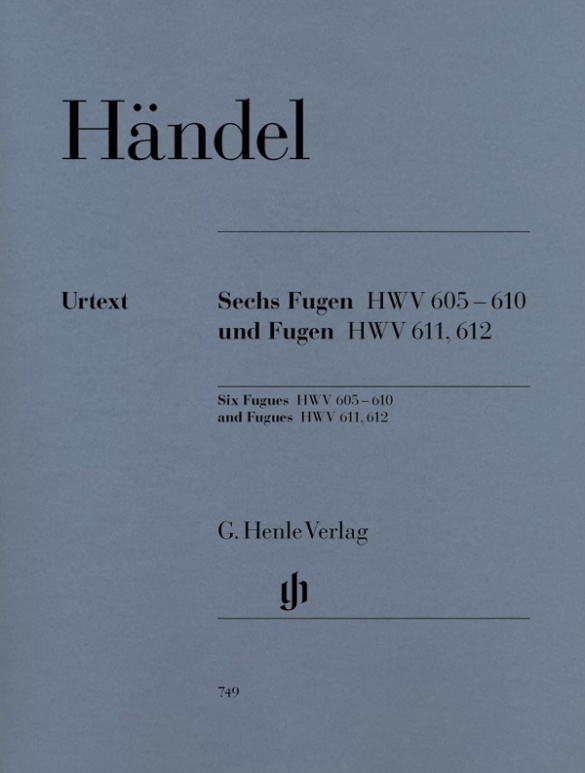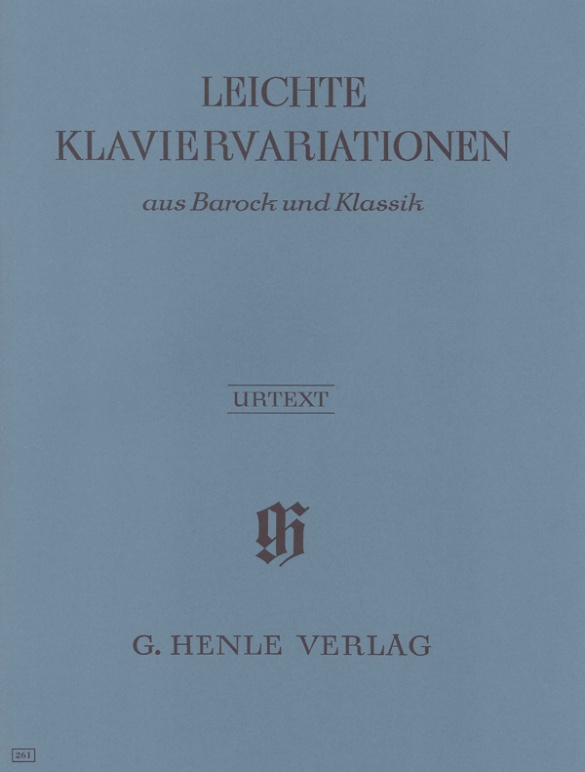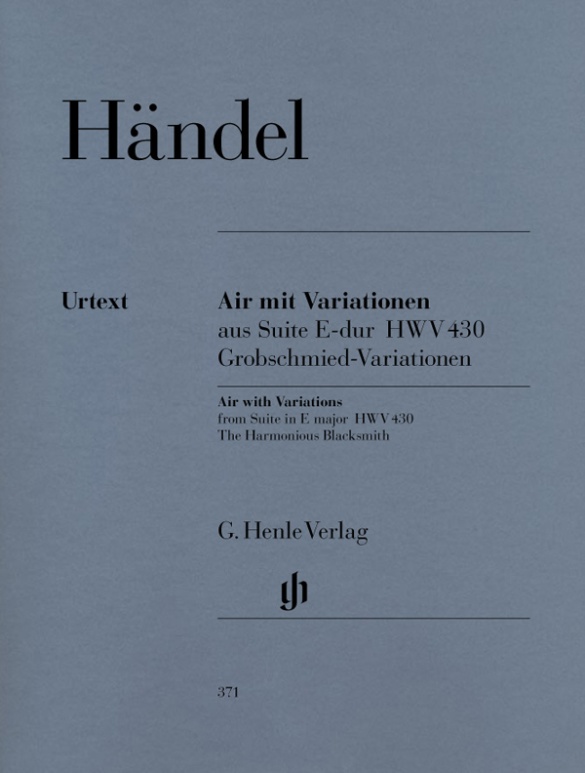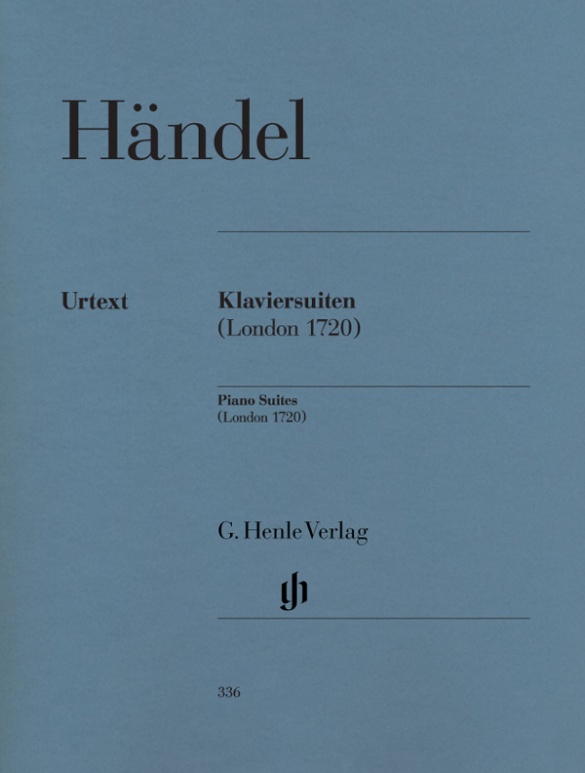

Georg Friedrich Händel
Piano Suites (London 1720)
George Frideric Handel’s powerful musical personality reveals itself not only in the large forms of opera, oratorio, and orchestral suite, but also in his compositions for keyboard. The focus here is on the eight Suites of his first printed collection from 1720, which by no means comprise standardised sequences of dance movements. On the contrary – free-form movements of great artistic weight predominate, inserting themselves between lighter dance pieces. Handel’s suites always display a distinctive individuality, and deserve a larger presence in our concert halls. We were able to engage Handel specialist Anthony Hicks as the editor of this Urtext edition.
Content/Details
About the Composer
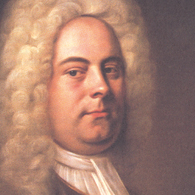
Georg Friedrich Händel
He numbers among the most important composers of Italian operas and is a major proponent of the oratorio; his immense oeuvre also comprises concerti grossi and solo concertos, liturgical music, chamber music, and music for keyboard instruments. He worked in London.
| 1685 | Born in Halle (Saale) on February 23. |
| 1702 | Organist at the Palace Cathedral in Halle. |
| 1703 | Employed as a violinist, later as a harpsichordist, at the Oper am Gänsemarkt in Hamburg; premiere in 1705 of the opera “Der in Krohnen erlangte Glücks-Wechsel, oder: Almira, Königin von Castilien” (“The Change of Fortune Won in Crowns, or: Almira, Queen of Castile”). |
| 1706–10 | Stay in Italy, with opera performances. |
| 1710 | Employed as music director by the Elector of Hanover. The 1711 London premiere of “Rinaldo” is a great success. In 1712, he will travel once more to London, where he will remain for the rest of his life. |
| from 1720 | Important position at the Royal Academy of Music, which he founded in 1717. |
| from 1724 | Successful premieres of “Giulio Cesare in Egitto,” “Tamerlano,” “Rodelinda” in 1725, and “Alessandro” in 1726. |
| 1728 | After the dissolution of the Royal Academy of Music, Handel continues to lead his own company. |
| 1733 | Competition from the Nobility Opera, which is supported by the aristocracy. Premiere of “Orlando.” |
| 1734 | Engagement of a French ballet troupe to outdo the Nobility Opera. Integration of French elements into his own operas. |
| from 1735 | Premiere of “Alcina,” “Giustino” in 1737, “Serse” in 1738 (containing the famous largo “Ombra mai fù”). |
| 1736 | Three “Water Music Suites,” HWV 348–350. |
| 1739 | Twelve “Concerti grossi,” Op. 6, after Corelli’s example. |
| 1741 | Unsuccessful premiere of the melodrama “Deidamia”. From then on, composition of oratorios, including “Messiah” (1741), “Judas Maccabaeus” (1746), and “Jephtha” (1751). |
| 1749 | “Music for the Royal Fireworks,” HWV 351. |
| 1759 | Death in London on April 14. |
About the Authors
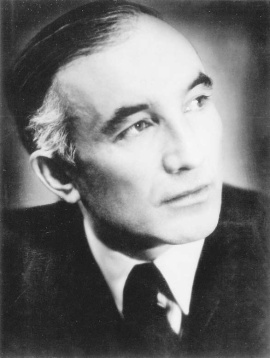
Hans-Martin Theopold (Fingering)
Prof. Hans-Martin Theopold, was born to a pastor’s family in Detmold on 22 April 1904, the youngest of five children. Even as a child he often played the organ in the “Marktkirche” and soon began to take piano lessons with Theodor Vehmeier. At the age of 17 he made his debut at the Landestheater in Detmold with Ludwig van Beethoven’s Piano Concerto in C major under Friedrich Quast (Herford). Following the successful completion of his schooling at the Gymnasium Leopoldinum in Detmold, he went on to study music and piano (main subject): from 1922–23 at the “Württembergische Hochschule für Musik” in Stuttgart (with Max Pauer, 1866–1945) and then from 1923–1928 at the “Staatliche Akademische Hochschule für Musik” in Berlin-Charlottenburg (with Richard Rössler, 1880–1962, and Waldemar Lütschg, 1877–1948). After completing his piano studies (graduating with “very good”) in 1928, he began an active solo career both at home and abroad (USA, Switzerland, Scandinavia, the Baltic states, the Balkans). As a member of the Chamber Music Association of the State Opera in Berlin (from 1933) he also gave countless chamber music concerts, including ones with his violin partner Gustav Havemann (1882–1960).
In the 1930s, audiences and the press alike raved about Theopold’s extraordinary gifts as a pianist: “This young player has it in him to soon become one of the best players in Germany. A superior technique, a wonderful singing piano tone, the strength of a Titan, but not at all hard due to the incomparably gentle elasticity of his touch” [Münchener Zeitung, 21 November 1933]. – “H.M. Theopold gave convincing proof of his splendid pianistic ability in an extremely gripping sonata with a modern idiom by Alban Berg, but predominantly in Schubert’s […] Wanderer Fantasy, which he played with a polished technique and creative power” [Weser-Zeitung, 21 December 1932]. Theopold was awarded several prizes, including the “Grotrian-Steinweg-Preis” in 1928.
In 1937 Theopold became a teacher for the piano (main subject) at the “Bayerisches Staatskonservatorium der Musik” in Würzburg. In 1939 he married Irene Tatjana Wülfing, who was from Moscow. From 1943 he became head of the piano master-class at the “Nordische Musikschule” in Bremen, although this was interrupted by the events of the war. Following his return from a prisoner of war camp, Theopold gave concerts and taught although he did not hold a permanent position. From 1955–1956 he was acting head of the piano master-class at the “Bergisches Landeskonservatorium” in Wuppertal, finally being appointed Professor for Piano on 1 April 1956 at the “Staatliches Institut für Schul- und Volksmusik” in Detmold, later at the “Nordwestdeutsche Musikakademie Detmold” (today “Hochschule für Musik Detmold”), where he taught for decades. On 30 September 1969 he retired. “His students extol his pedagogical gifts. […] Humour, charm, helpfulness and kind-heartedness moderate the strictness of his professional ethos as a musician and teacher” (Lippische Rundschau, 23 April 1969; see also: Lippische Landeszeitung 22 April 1969 on the occasion of Theopold’s 65. birthday: “Prof. Theopold, a modest but at the same time energetic man, is an enthusiastic teacher”). Theopold died in Detmold in 2000.
Contact with Günter Henle was established directly after the publishing house was founded, when Theopold thanked the publishers with great enthusiasm for its first Urtext editions. His extensive correspondence with the publishing house was bequeathed to the Lippische Landesbibliothek in 2014 to ensure its long-term accessibility to the public. The letters testify not only to Theopold’s great interest in musical sources and text questions but also to his initial strict refusal (!) of fingerings in text-critical editions such as these: “For fingerings are and remain something individual no matter what their quality” (letter to Günter Henle from 26 May 1949 {publishing house archives}). Günter Henle was not, however, to be swayed and stressed the necessity of fingerings in his Urtext editions: “It is better to publish the Urtext […] with fingerings that are not necessary for a few individuals, or that might even, I admit, be considered irritating here and there” (letter to Hans-Martin Theopold of 17 September 1953).
It was only in 1955 that Theopold accepted Günter Henle’s offer of contributing fingerings for an Urtext edition that was in the process of being prepared by way of trial. (HN 74, Schubert, Complete Dances for Piano, Volume 1). Following this, Theopold was commissioned to write the fingerings for nearly all of the publishing house’s new editions in quick succession. Günter Henle, himself a good pianist, greatly valued Theopold’s fingerings, and also the many suggestions regarding the musical text in question. In addition, Theopold was always very reliable, thorough and conscientious – something that is not unimportant with editorial work!
Thus to date Hans-Martin Theopold has provided the fingerings for the greatest number of Henle Urtext editions by far – 226 editions (!) in total.
We would like to thank Mrs Margot Theopold and the Hochschule für Musik in Detmold for their great support in providing biographical material.
G. Henle Verlag
Product Safety Informations (GPSR)

G. Henle Verlag
Here you can find the information about the manufacturer of the product.G. Henle Verlag e.K.
Forstenrieder Allee 122
81476 München
Germany
info@henle.de
www.henle.com
- Références aux sources très clairement présentées suite par suite.- Beau papier et belle gravureEdition Urtext de grande qualité, fidèle à l'édition originale et accessoirement à diverses sources manuscrites actuellement connues, très clairement présentée et accompagnée de quelques suggestions d'interprétation conformes aux coutumes de l'époque. L'une des meilleures éditions critiques aujourd'hui disponibles, qui s'adressera aux clavecinistes aussi bien qu'aux pianistes.
La lettre du musicienrecommendations
autogenerated_cross_selling
Further editions of this title
Further editions of this title


